“For 15 years, Gina was one of my dearest friends. She was an actor and playwright, whom I first met after she rang to discuss writing a play from one of my books. ‘I’d like to talk about it with you, ask you questions.’
I was flattered and excited. ‘Yes, of course, but I am going overseas to live next week,’ I remember saying. ‘My partner and I will be working there.’
‘I’ll come too,’ she said. I was surprised and rather overwhelmed by her sudden decision.
She did come to Paris about a month after I arrived there. We exchanged notes, ideas, thrashed out scenarios. We went to cafes and concerts, delighting in each other’s company. Gina returned to Sydney and after a year, my partner and I returned too, moving into an apartment not far from hers. We took up our friendship, walking between each other’s apartments, enjoying the soft humid Sydney air, the plane trees that reminded us of Paris, and the Moreton Bay figs hunching protectively over us as we talked and laughed. For years our friendship continued and I had no reason to think it would not last forever.
Then she started putting off meeting up with me. She had work, she had to look after her brother, she was too tired. I accepted it time and again, but started to have my doubts. Finally we met up again and all seemed to be well, but I could feel the slight strain of uncertainty. My partner and I moved house and she came to dinner at our place and was warm and lively and outgoing and I thought, all is well, it was just in my head.
I had no reason to think it would not last forever
It was the last time Gina ever came to my apartment. She avoided meetings again, didn’t answer texts, was ‘busy’. I returned to Paris to teach, but she didn’t want to see me before I went. She was too busy when I got back.
But one day, I received a text saying she was in hospital. She had been hit by one of those rare illnesses that no-one has ever heard of. I visited her every day, bringing her whatever she requested, secretly glad of the chance to see her again.
It didn’t last long. Soon after she came out of hospital I received a text instructing me not to contact her again. I was shocked and bewildered. We had been intense friends for 15 years, we had exchanged our hearts and minds. Now I had been cut off, pruned, cast aside without explanation. I was hurt and bewildered.
In an attempt to understand, I started to write the story of our friendship, sorting through the kaleidoscopic memories. True Friends became an exploration of my connection with Gina, threaded through with a history of friendships from earliest childhood. I circled around my memories, I twisted and retwisted the kaleidoscope, letting the memories fall and re-form into a pattern of understanding.
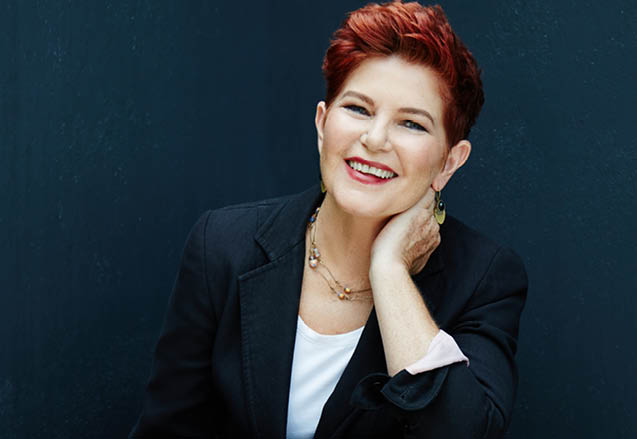

But the truth is that in all this examination, I still haven’t arrived at why I was pruned. It still could have been an unwitting hurt I inflicted, something I still don’t remember, but giving my relentless raking over of memory, I doubt it.
I became burdensome, clearly, but why, I still don’t know.
It is embarrassing to express the pain of being considered a burden. It has a pathetic air, like an elderly aunt tottering in the loungeroom, bumping into the coffee table with her cane, apologising, trying not to get in anyone’s way. It’s not the sort of pain anyone writes a poem or song about; there’s little drama or passion, just humiliation. In four years, the pain has faded, or rather, seems like an artefact stored behind glass in a museum cabinet, all its ability to hurt gone, but I do still feel bewilderment at times.
The most likely explanation is not that I did something ‘wrong’, but that I was no longer worth the effort. Knowing Gina had time for others – I heard through a mutual connection that she had gone to Melbourne to visit friends – and not for me, who lived 10 minutes away, made me feel strangely ashamed. It’s not that I felt guilty, but in a sense, outcast.
An outcast, by definition, cannot share what has happened to them. It is not something to discuss with other friends – if I’ve been found unworthy by one friend, why would I advertise the fact to another? Somewhere in the neural pathways of memory, or perhaps further back in the DNA of our survival, there is the dark sliver of fear of being cast out of the tribe. I must not talk about the rupture in case it spreads.
And then I recall the lines from Emerson that another friend read out to me one day: “When [friendships] are real, they are not glass threads or frostwork, but the solidest thing we know.”
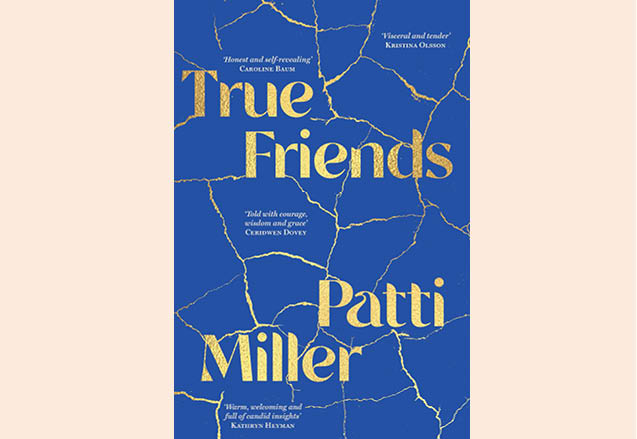

I can see now that my friendship with Gina was made of glass threads, beautiful but too easily broken. At the same time, other friendships have been the solidest thing I know, bending and swaying with the shifts in our lives yet remaining intact.
For me, loving friendship is not a fusion with another, but it is a rickety swing bridge to a separate being, and even though I know it can fall into the abyss, the urge to step on to it is always there. There is strength in that desire for connection, the possibility of being saved from invisibility.
In the end, it was writing about the friendship that took the hurt away. Almost as soon as I started work on the memories, they lost their sharpness, their ability to cut. Now they were simply pieces for me to use, to arrange, to place in order.
In writing True Friends I also realised I had not been innocent. There were friends that I had left behind over the years. I recontacted the ones I could find and made a warm reconnection. Still, I knew it would be awkward to bump into Gina again. As far as I knew, she still lived 10 minute walk away. I was afraid I would not know how to behave. Would I say, ‘This is awkward,’ like a cool and clever woman in a film? Would I walk straight past her with the merest nod? Or would I find myself performing a charade, smiling as if nothing has happened?
**********
As I write this, a recent memory returns. I am sitting on the grass in a park in Sydney, with a friend too new to name, perhaps we are not friends yet. We are seated on a slight rise, looking towards the sea, a coppice of masts sway and clink in front of us and sunlight silvers the water in rippling splashes. Even though it is winter we are warm and sweaty – we have both walked five or so kilometres to meet. We drink coffee, we put on sunblock, we adjust our hats. We talk about writing and family – we are still at the stage of offering pieces of ourselves – and I feel the steady flow of energy between us. Afterwards, as I am walking home I feel lighter. Perhaps the swing bridge will hold this time.
This is an edited extract of True Friends by Patti Miller, published by the University of Queensland Press
Photo credit: Sally Flegg
Illustrations by Millie Bartlett




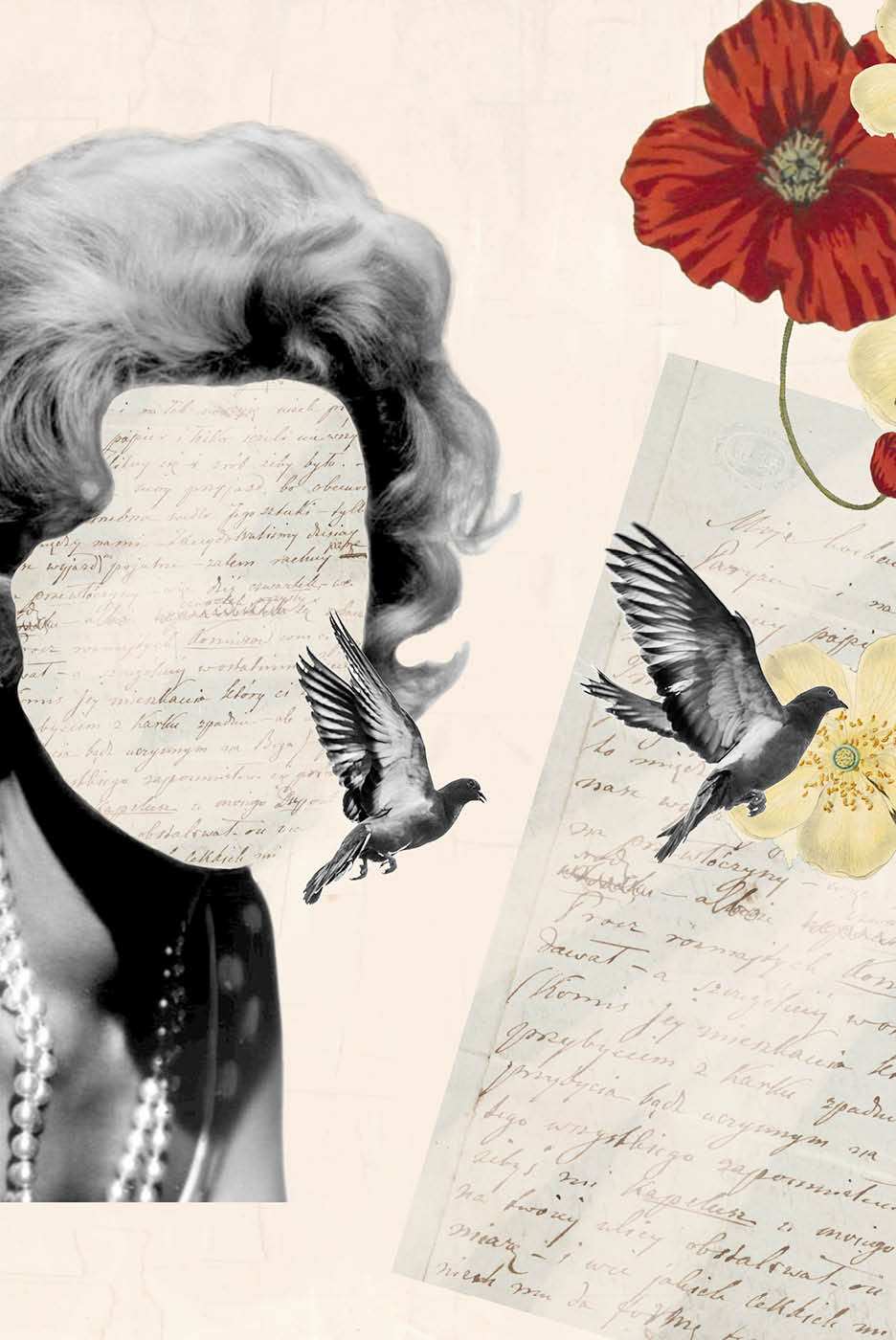
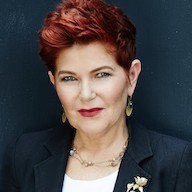

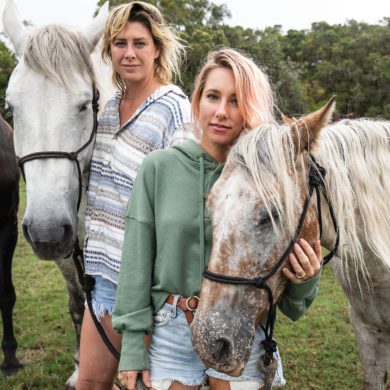

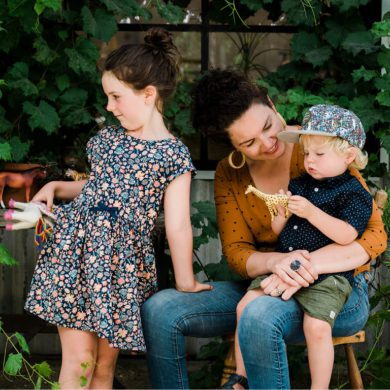



1 Comment